Mattress Help, Mattress Choices
April 2023Soft, medium or firm mattress tensions explained.
Updated 2023: Getting the right tension, or firmness, for your mattress, really is the first thing you need to establish when buying a new mattress. Not all mattresses are the same and more often than not people choose the spring tension thinking it will give them the ‘true feel’ of the mattress, which is completely wrong.
The mattress spring tension is based solely on your body weight which is where most people make mistakes. It’s the fibres on top that create the feel of the mattress.
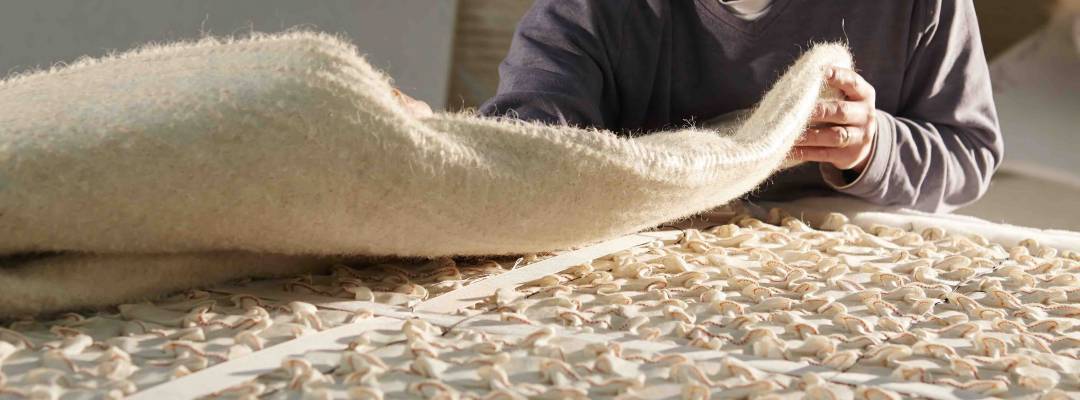
Mattress firmness is often poorly described by mattress retailers. They often confuse comfort and spring tensions on their mattress listings but there’s an easy way to ensure you get the right support and comfort from your mattress. We give you our expert guide on how to avoid picking the incorrect mattress.
- How to choose the right mattress spring tension
- The comfort upholstery layers
- What’s the softest mattress?
- What’s the best medium feel mattress?
- What’s the best firm feel mattress?
What mattress firmness should I choose?
Firstly, in the mattress industry, there has to be a precise definition of soft, medium or firm which there isn’t. You’ll see all sorts of sliding scales and ratings but without knowing what is exactly inside that mattress, it’s just a guess.
This is because most of the time the retailers are using the spring tension to explain the relative firmness of the mattress which is incorrect.
Most mattress firmness ratings are based on the upholstery layers on top of the spring unit. So when you’re looking for a medium-firm mattress you need to be looking at that upholstery as well as the spring tension to work out the right mattress tension.
The best way to choose what firmness of mattress you need
- Identify what spring tension your bodyweight requires
- Pick the comfort layers (ie mattress fillings) and how they will feel
However, most retailers won’t tell you this as they want you to make a far quicker decision. Using the spring tension incorrectly in this way allows them to cut to the chase when making the sale. This often leads to you choosing a mattress that could be entirely unsuitable for your bodyweight.
1. What spring tension should I choose?
Spring tensions of a mattress are usually described as Soft, Medium or Firm. This gives the illusion that the mattress itself with feel this way. This is incorrect. These three tensions are directly linked to your body weight on the mattress.
The very first question you need to ask is which spring gauge is made to match my bodyweight. This means you will have the exact amount of support needed during the night.
In a high-end mattress, different spring tensions will be available.
| Spring Tension | Wire diameter (Gauge) | Weight Range |
|---|---|---|
| Soft | 1.2mm | Bespoke Tension (Please Call) |
| Medium | 1.4mm | Upto 16 stone |
| Firm | 1.6mm | 16 stone plus |
| Extra Firm / Orthopaedic | 1.9mm | 20 stone plus |
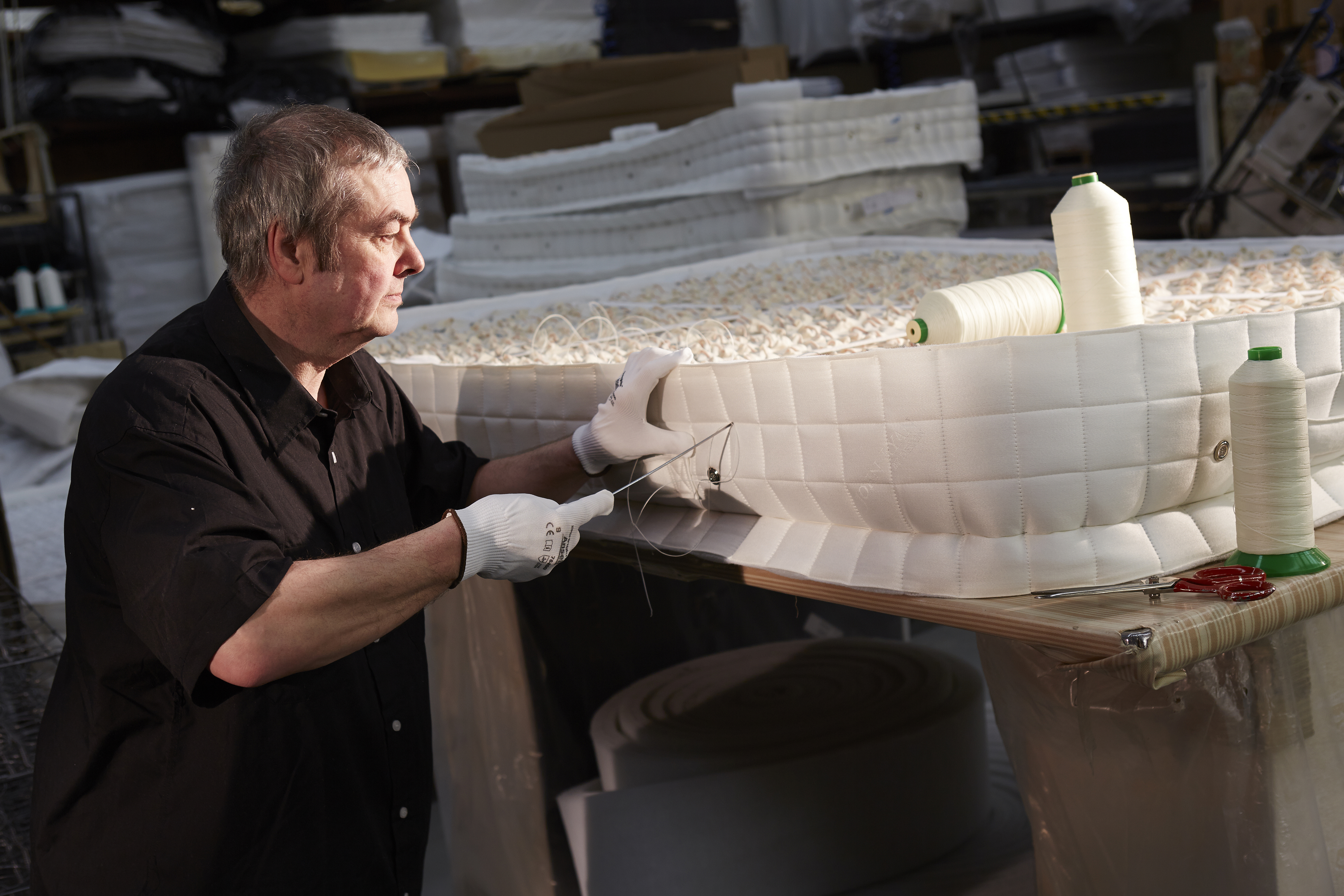
What about standard spring tensions?
If you’re looking at an entry-level mattress with only one spring tension it is usually a 1.4 gauge wire on the medium side. This is because it suits the largest number of sleepers as most people fall into this bracket.
The support from all similar spring foundations is relatively the same, particularly if the same spring gauge (thickness of wire) is used. One essential thing is to ask and find out the spring gauge or tension of any mattress you are buying. Where possible and if your budget allows you should always opt for a tailored spring tension like our Artisan Range of hand made mattresses.
How heavy are you?
Your body weight plays a huge part in choosing the right mattress. Without considering this you are simply guessing as to which spring and tension you need. Retailers rarely ask this and will want to avoid getting into too much detail with you. They do this to keep the sale quick and simple. This often results in you ending up with a really unsuitable mattress and a nightmare trying to exchange it with them.
A light person will find an orthopaedic mattress rock hard, whereas a heavier person may find it just right. So what kind of mattress would be chosen for the heavier person who is asking for a firm mattress believing that this would be the only option for them?
This is where the expertise of the retailer should come into play.
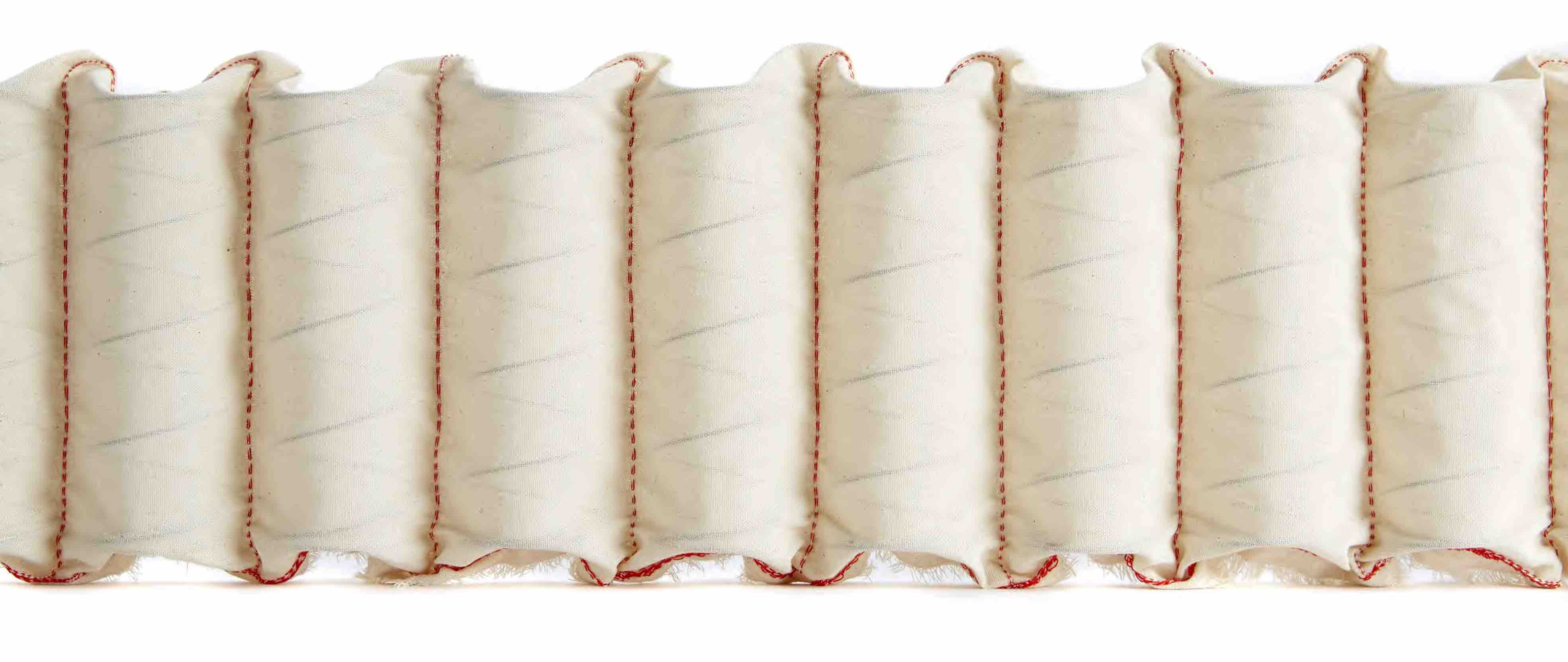
For us, we know exactly what mattress would be entirely unsuitable for a person with a bodyweight of say 18st and equally, we also know what would be entirely suitable. More so than the customer. We know which materials would be more durable, we know what spring type would be more supportive for their weight, we know whether a particular mattress would be better if an additional layer of wadding was included/replaced and so on. It really should not fall on you to make a decision based purely on the mattress you want to replace. You need to know all the viable alternatives. We are here to help.
We can help identify the correct spring tensions for you – no more guessing
Another thing to bear in mind is that mattress tension is also relative to the size of the mattress a single mattress will be firmer than a double mattress, a lot firmer than a king size and much firmer than a super king, and of course vice-versa. The bigger the span of the mattress the ‘softer’ it will feel.
So going out to buy a mattress bigger or smaller than the one you are looking to replace will have a direct influence on the mattress tension. This is where you may need specialist advice and we can help prevent you from guessing.
The size of the mattress will influence how firm is feels. A smaller single mattress will feel firmer than a super king even in the same spring tension.
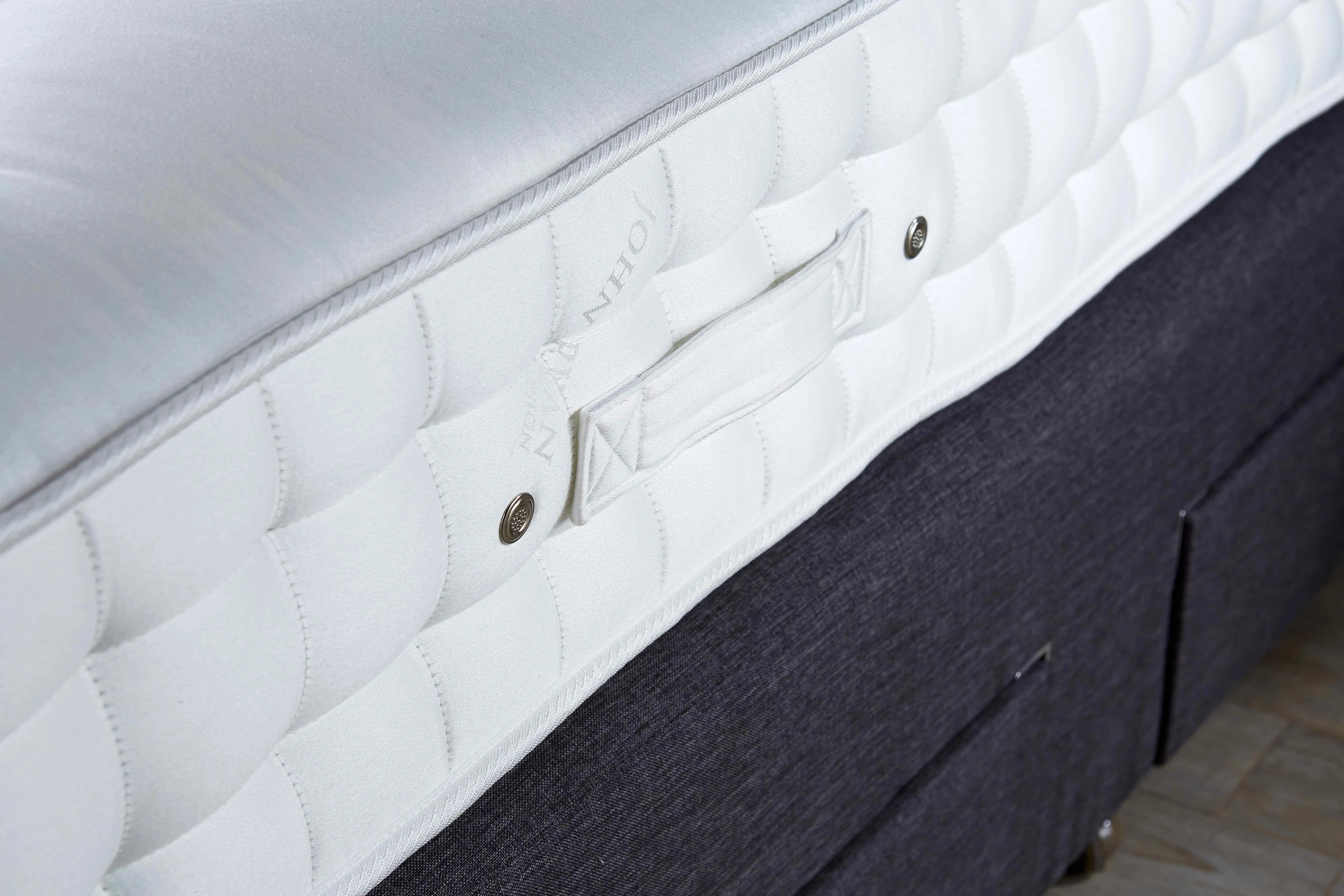
As if that wasn’t enough there is also the fabric to consider. Mattresses that have a final layer of latex or foam will always have a soft knitted fabric to face the mattress. Whereas final layer polyester will usually have a damask (woven fabric) to face the mattress.
When manufacturers want the mattress to have a softer overall tension, then they would use a knitted fabric rather than a Damask. However, care needs to be taken with cheaper polyester knitted fabrics when compared to Damask. A Viscose Damask if far more breathable and hardwearing than any knitted or quilted cover.
How firm should my mattress be?
Your mattress firmness should be dictated firstly by your weight. Always choose a spring tension that meets your weights using out handy spring tension guide above. The comfort layers should provide your preferred ‘feel’ of the mattress ie soft, medium or firm, but never choose the spring tension for this.
As a rule of thumb, the following tensions will suit these common sleeping positions:
- Side sleepers – should choose a softer tension
- Back sleepers – should choose a firmer tension
- Front sleepers – should choose a medium tension
Mattress firmness vs Mattress support
There is a clear misunderstanding in the bed industry about perceived firmness and support. Often the two words are used interchangeably. We can’t stress enough how these two words have very distinct meanings and are not the same thing.
The support unit of your mattress is nearly always dictated by your weight and height.
This is because spring units are manufactured with certain load or weight tolerances. This means they are made to take a certain amount of weight to load (compress) and unload (extend) correctly. If you imagine the force you must apply to a standard spring to compress it and then how much force is needed to be removed before it will extend, this sometimes helps understand this principle.
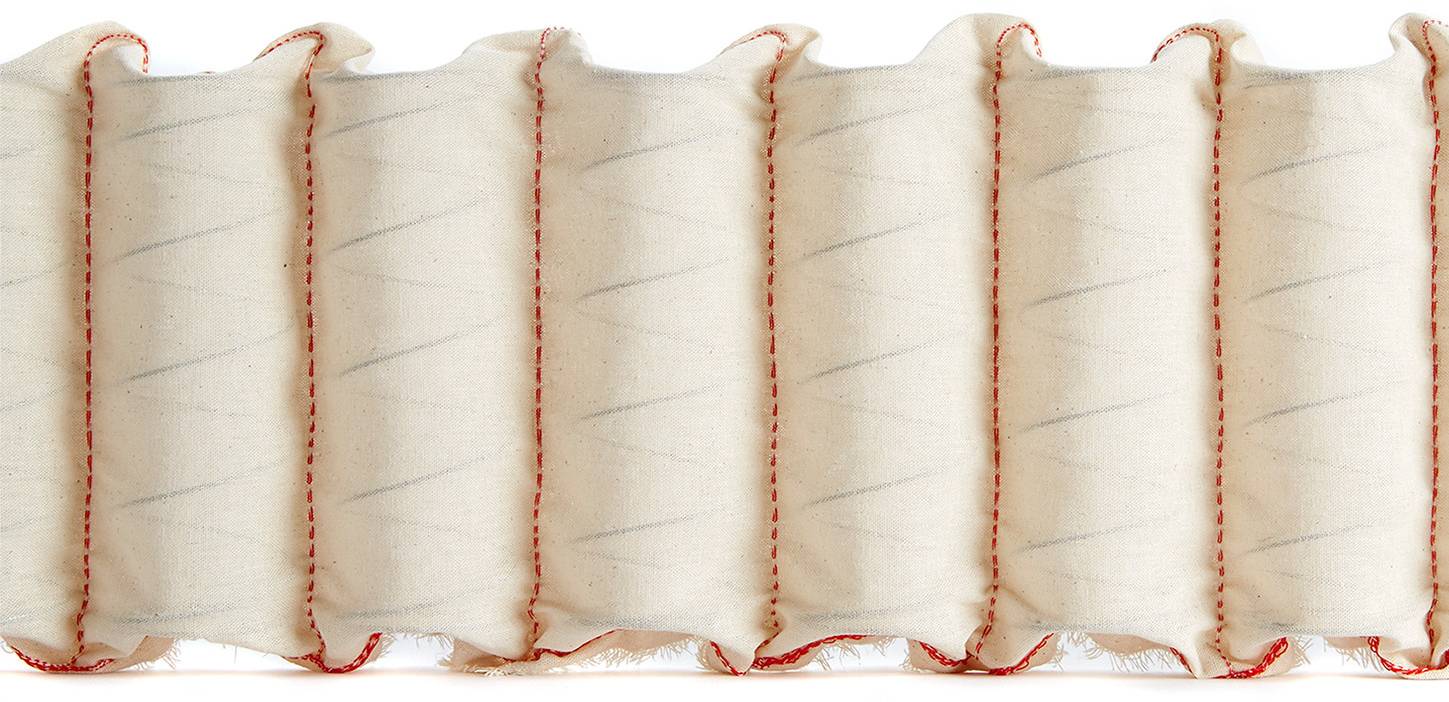
If you, therefore, choose a spring unit that is made for a weight tolerance that your body weight doesn’t fit, you’re either going to end up with a firmer spring than you need, which means it won’t compress as it should, or too soft a spring meaning it compresses too far. Whilst it’s your choice if you want to go for a super firm spring, it really will be overkill and prevent the mattress from accommodating you properly.
Most people mistakenly confuse the spring tension with how the mattress will feel
It’s essential that you know the weight limit that can be applied to the spring to work out if it is going to be suitable for you. Even if you want the firmest mattress possible, a spring that is too firm ie has too wide a gauge for your body weight, will never give you proper support. You will merely rest on the top of it like sleeping on a hardwood floor. The spring units sole purpose is to compress and extend to accommodate your weight, lumps, bumps, elbows and wriggling needs.
How to tell if a mattress is too soft or firm
You’ll quickly find out if a mattress is too soft or too firm by the quality of sleep you have on it each night. If a mattress is too soft or firm, you’ll quickly start to experience any of the following symptoms:
- Disturbed sleep
- Turning over frequently during the night
- Stiffness in shoulders, hips or back
- Discomfort on pressure points during the night
- Restless sleep
- Feeling like you’re sinking excessively
- Sensations like sleeping on a board
- Difficulty getting out of bed due to cramps
When you experience any of these symptoms consistently it’s time to check both the spring tension and the upholstery firmness of your mattress to then either tweak it to soften it or consider replacing your mattress.
Retailers want you to make a quick decision just on spring tension alone
However its mattress fillings that will provide the overall feel or firmness of the mattress.
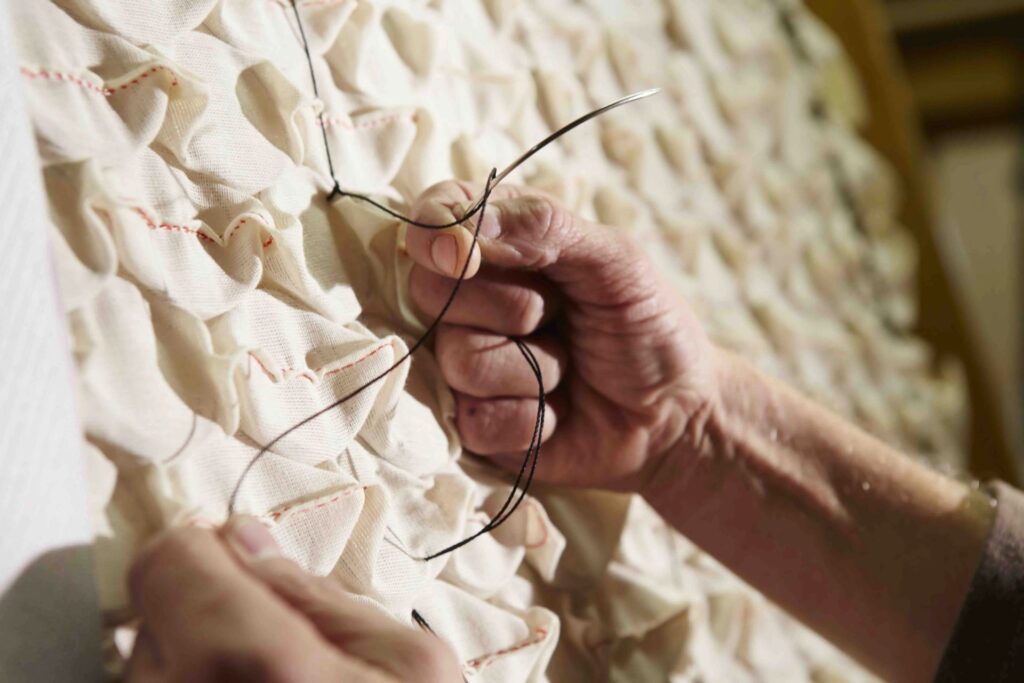
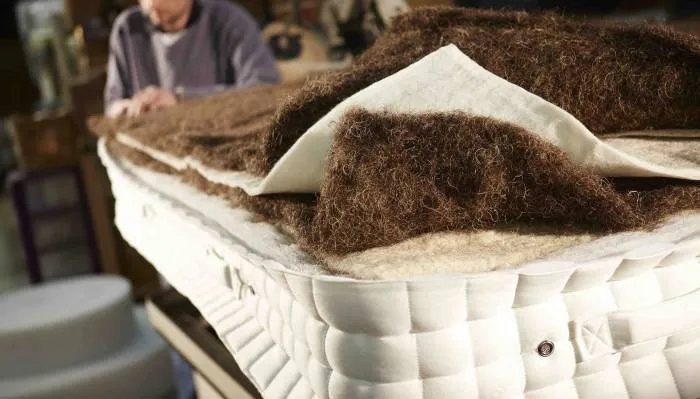
Unfortunately, there is no standard soft spring tension, accepted medium spring or defined firm spring tension (with the exception of orthopaedic springs which are all 1.94mm 12 gauge spring). Each manufacturer will have their own definition.
Our medium springs, for example, will accommodate a 10 stone sleeper up to 16 stone in the Origins range, there is some give and take with this, such as an 8-9 stone sleeper and a 16-17 stone sleeper, but this then requires some more careful thought about the upholstery layers.
Ask the mattress retailer what the spring tolerance is
You simply must ask mattress manufacturers what the spring weight tolerance is. Below we have listed our Artisan Spring tolerances, as we offer three tensions. This should give you an idea of the kind of detail you require. With this, there are exceptions which are rare, so if in doubt please get in touch with us.
| Artisan Spring Tension | Weight Range |
|---|---|
| Soft | Available as a Bespoke Product (Please Call) |
| Medium | Upto 16 stone / 101kg |
| Firm | Over 16 stone / 101kg |
2. Mattress Fillings as the comfort layer
Once you’ve established if the spring support unit is suitable for you, then the mattress upholstery layers on top of this spring unit will give you a better idea of the ‘perceived overall firmness’. These are also known as the comfort layers of a mattress.
It’s the mattress upholstery that creates what ‘comfort firmness’ the sleeper prefers not the spring.
The upholstery or mattress filling layers provide the choice on the overall firmness you require from your mattress. This is where most people make mistakes. As they focus on the spring unit alone they pay little attention to the Type, GSM (how much each layer weighs) and Blend of the mattress fillings.
This is where the real choice lies. You can have two medium tension springs, suitable for say a 13 stone sleeper, in two mattresses but topped with different upholstery layers that will give one say, a medium feel and one a much softer or firmer feel.
This is where you need to apply all your knowledge to work out how the top layers of the mattress will feel.
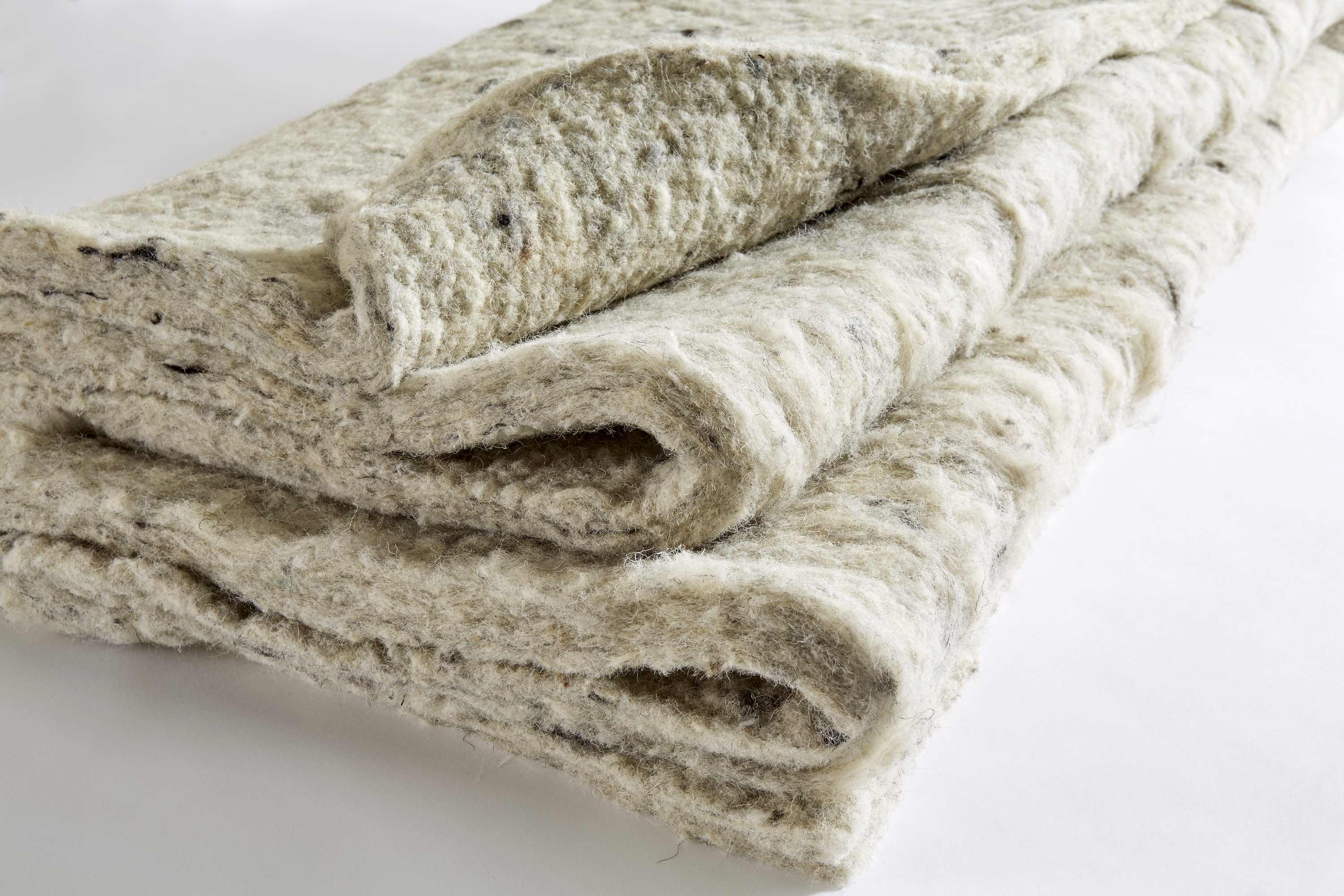
- Foams for example in our Origins Reflex give a firmer feel in the upholstery layer.
- British fleece wool and cotton in the top layer of the Artisan Luxury will give a really soft feel to the mattress.
- Horsehair will give a firmer feel in the comfort layers like our Artisan Bespoke
- Alpaca fibre and Bamboo are some of the softest fibres as in our Artisan Bespoke 003
Yes, the support unit plays a part, but this is really set by your weight, whereas the upholstery can give you the option of either a softer or firmer feel in the top layer, the layer you’re immediately lying on.
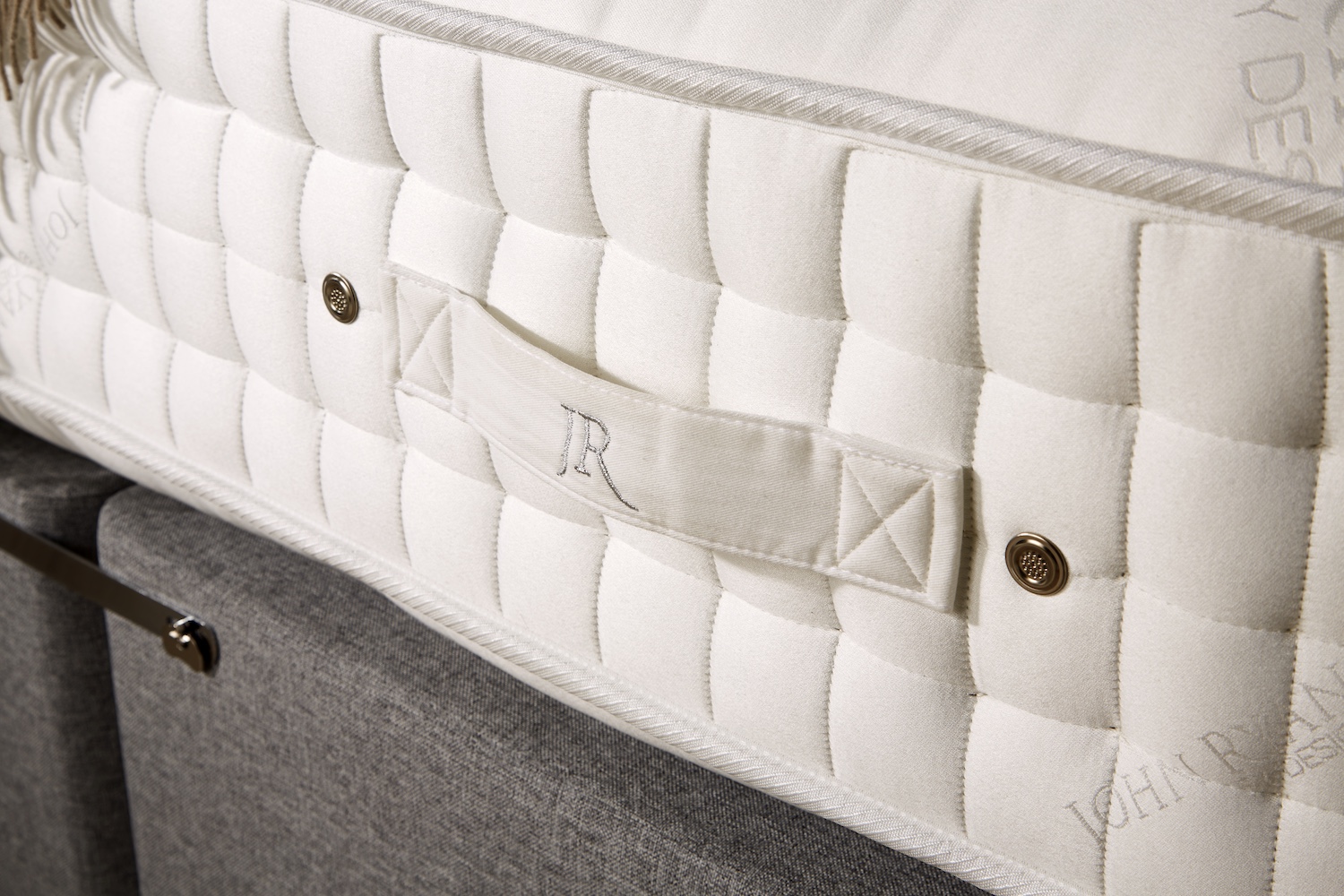
Each of our product descriptions in the shop gives an idea of how the mattress will feel for your bodyweight. At present, we believe we are the only retailer to do this. Below is an example for the Origins 1500 mattress and what the perceived firmness will feel like.
| Upholstery Layer | Fibre Type | How it will feel? | Price Point |
|---|---|---|---|
| Polyester | Synthetic | Soft | Cheap |
| White Fibre | Synthetic | Soft/Medium | Cheap |
| Recycled Fibre / Eco Fibre | Synthetic | Medium | Cheap |
| Memory Foam | Synthetic | Medium/Firm | Mid Price |
| Igel / Hybrid Foam | Synthetic | Medium/Firm | Mid Price |
| Polycotton | Synthetic/Natural Blend | Soft/Medium | Mid Price |
| Linen | Synthetic/Natural Blend | Medium | Mid Price |
| Wool (Pure) | Natural | Soft/Medium | High-End |
| Cotton (Pure) | Natural | Soft | High-End |
| Silk | Natural | Soft | Expensive |
| Horsehair | Natural | Medium | High-End |
| Mohair | Natural | Medium/Firm | High-End |
| Hemp | Natural | Medium | High-End |
| Latex (100% Natural) | Natural | Medium/Firm | High-End |
| Coir | Natural | Firm | High-End |
| Flax | Natural | Firm | High-End |
| Coarse Cashmere | Natural | Firm | High-End |
| Bamboo | Natural | Super Soft | Expensive / Exclusive |
| Horsetail | Natural | Firm | Expensive / Exclusive |
| Alpaca | Natural | Soft | Expensive / Exclusive |
| Cashmere (Pure) | Natural | Soft | Expensive / Exclusive |
| Vicuna | Natural | Super Soft | Expensive / Exclusive |
What makes a soft mattress?
Soft mattresses are usually made up of softer upholstery fibre fillings. These fillings have high of and offer little in terms of support. Wool, Alpaca, Cotton and Soft Polyester on their own will make for a very soft feel mattress. These are usually layered with other fibres to help firm up upholstery layers.
We have two soft mattresses in our ranges. These are the Origins Comfort 1000, our entry-level pocket spring model and then our Artisan Luxury handcrafted calico pocket spring model. These have really soft upholstery in the top comfort layers ensuring that deep sink and soft feel.
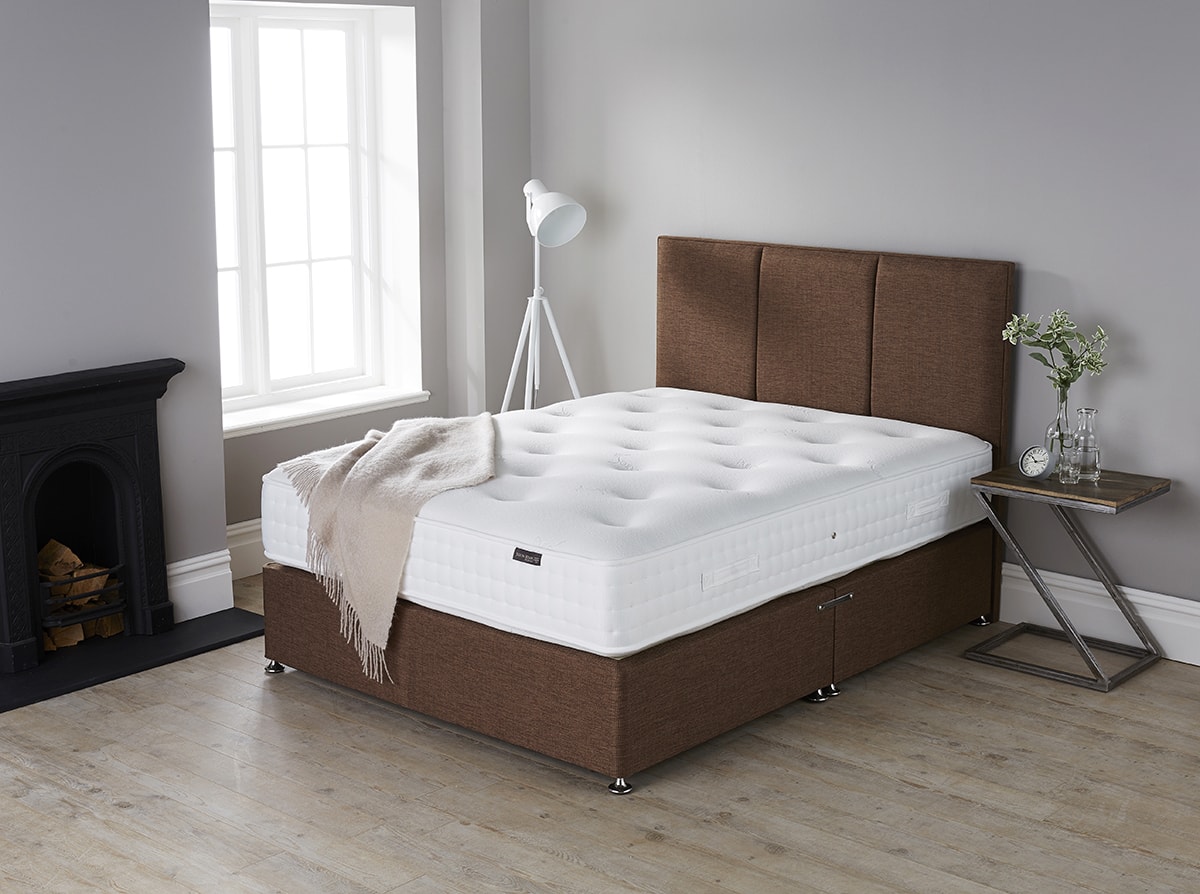
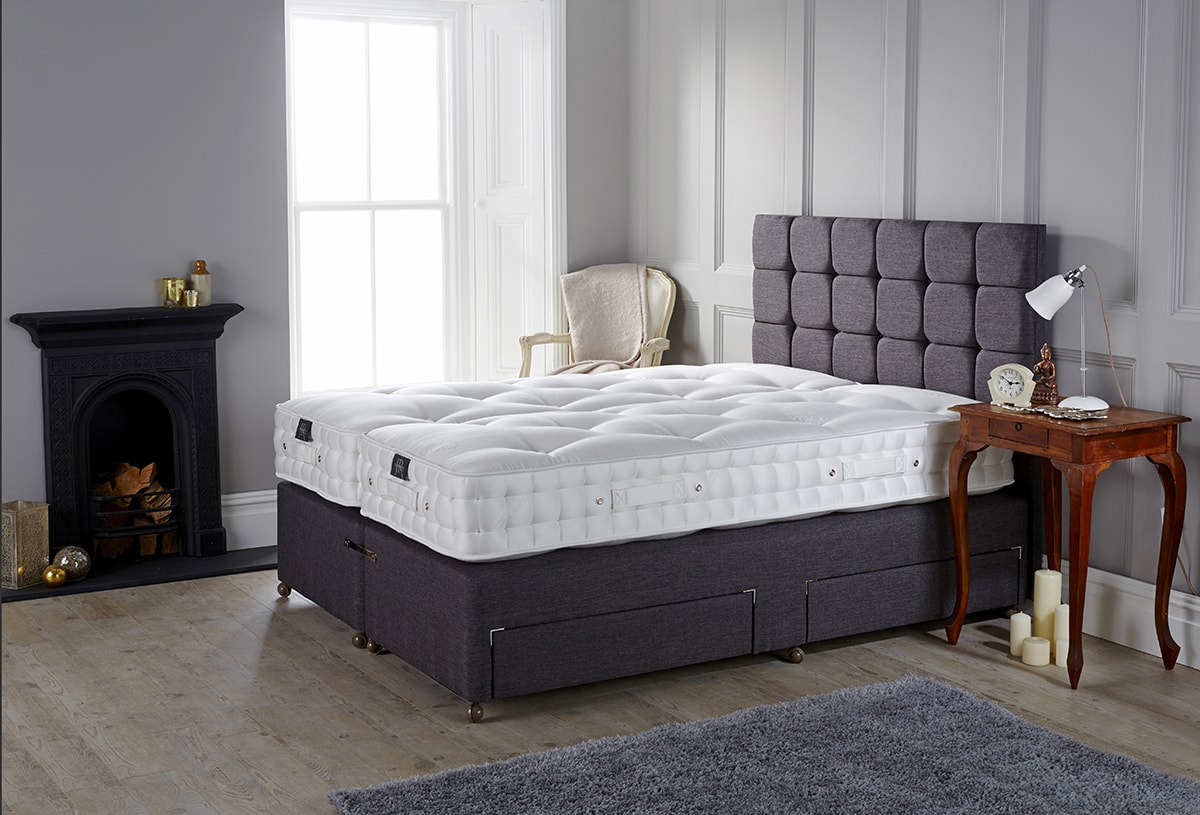
How to make a soft mattress firmer
The only way to firm up a softer mattress is to board over the sprung mattress base using some MDF or plywood over these springs or slats. You do this by adding a layer of plywood or mdf over the top of the bed base to firm up the bed support layer beneath the mattress.
If you’re already on a platform top base then unfortunately there’s no way to firm up a mattress. You can only ever make a mattress softer using toppers, pads and protectors.
What is a medium feel mattress made of?
The most popular mattress tension and feel is medium. The good all rounder in terms of tension. Not too soft and not too firm.
Medium feel mattresses blend softer fibres like wool with more resilient ones such as Coir, Horsehair, Mohair and other fibre blends. These firmer layers offer support alongside the spring unit which help provide that medium feel where you sink slightly but are supported more than a soft tension mattress.
Our medium feel mattresses are the Artisan Naturals, Artisan Bespoke 004 & Artisan Bespoke 003. These all have incredibly deep comfort layers using fibres that provide a medium feel in the upholstery layers. All of these mattresses are available in either a soft, medium or firm spring tension which is dictated by your weight.
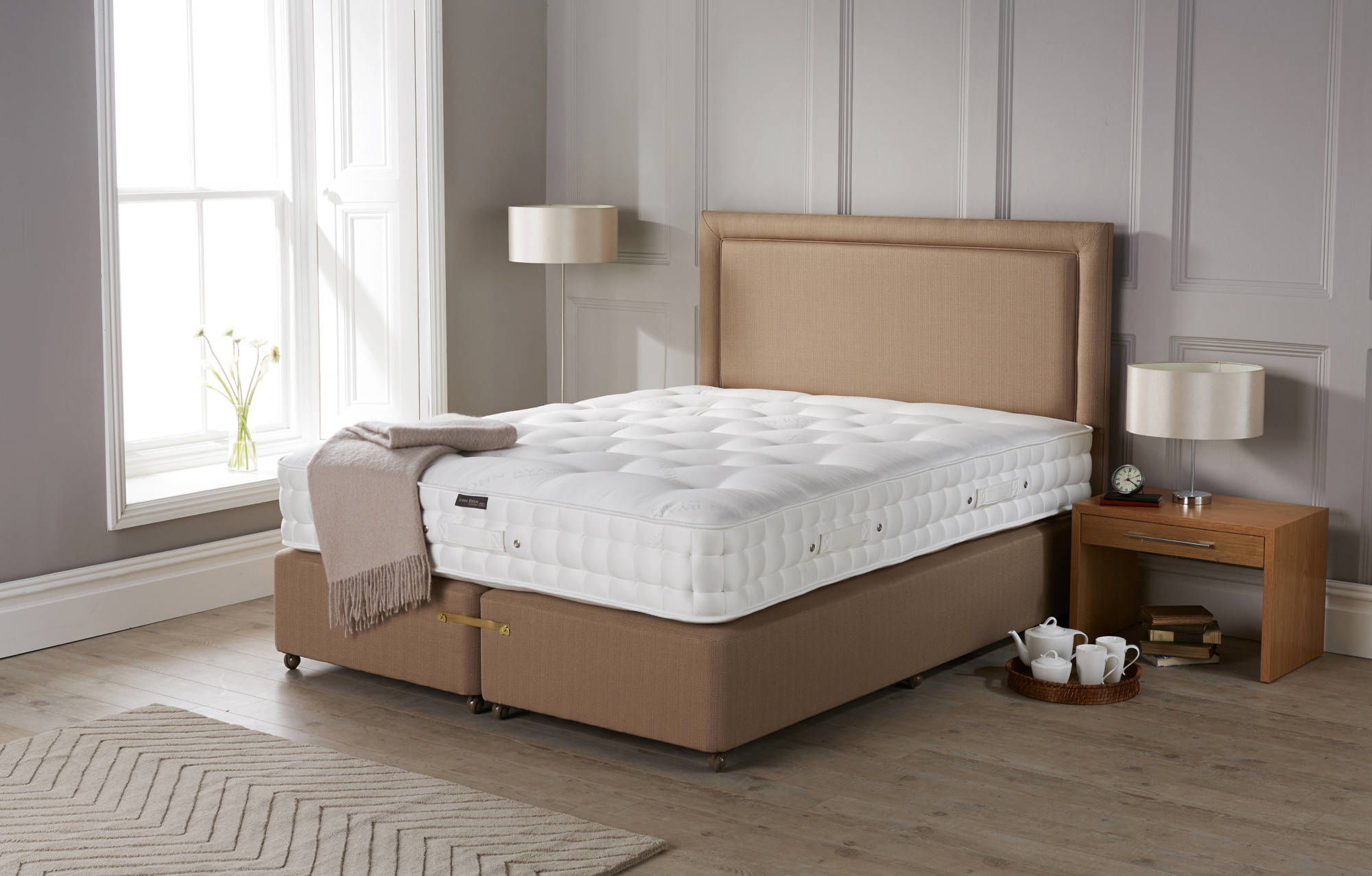
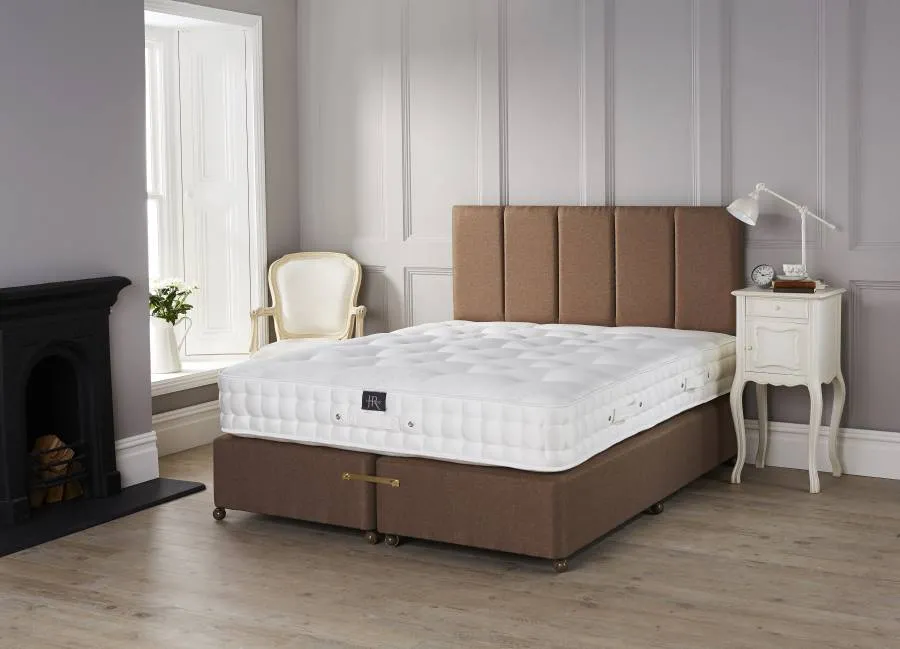
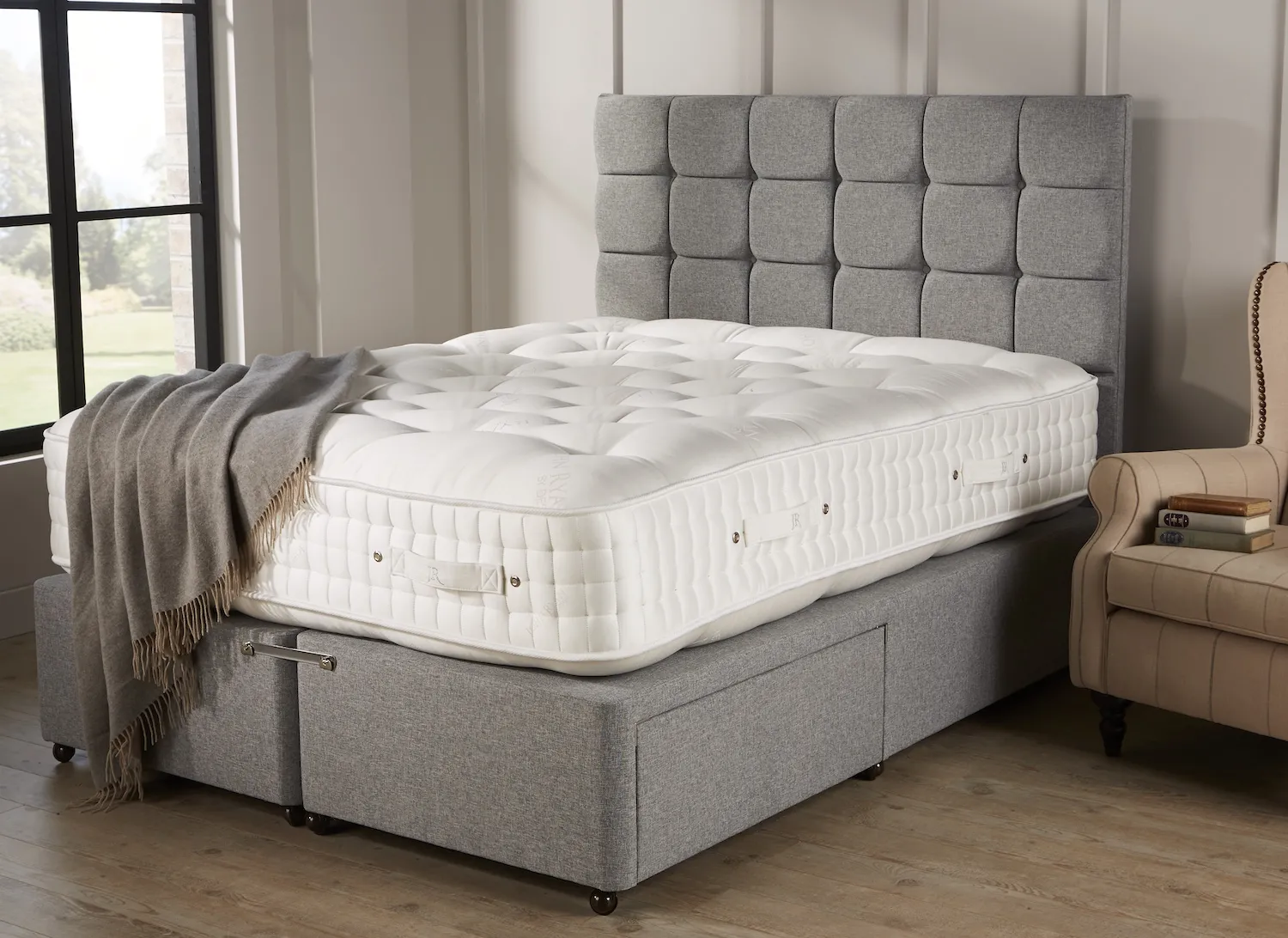
What’s inside a firm mattress?
Firm feel mattresses utilise predominantly robust natural fibres such as Horsetail, Flax, Polycotton, reflex foam and dense upholstery layers. This provides noticeably more support than softer wool-based fillings to give a mattress that firm feel. For most people firm feel mattresses can cause backache if you’re not used to them. So unless you’ve always had a firm mattress you may want to consider a medium feel.
Firm mattresses usually contain:
- Dense polyester
- High density foam
- Coir
- Horsehair
- Flax
- Woven hemp pads
Our Artisan Bespoke and Resilience models are our firmest models. The Artisan Bespoke is a handcrafted calico pocket sprung model whereas the Resilience range is a foam-based contemporary model. Bear in mind these are generals and your weight plays a part in how firm you will perceive these.
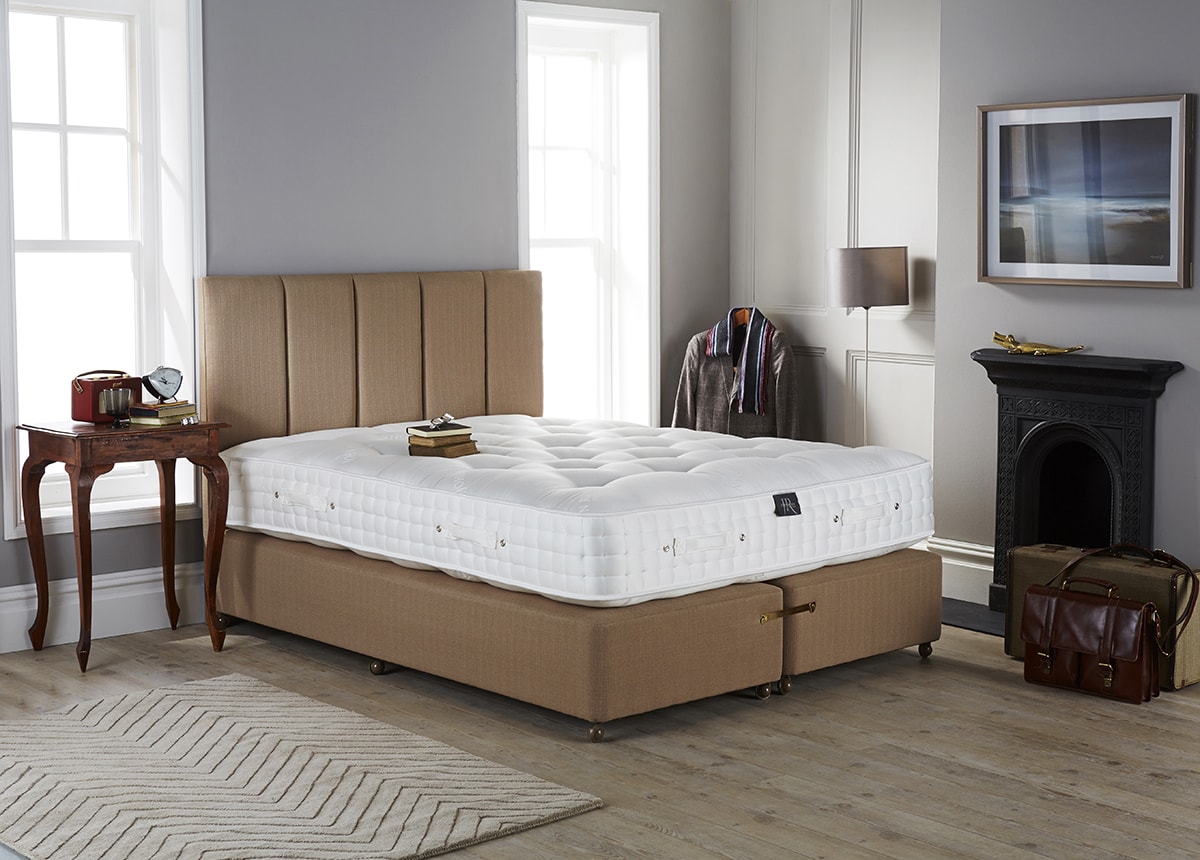
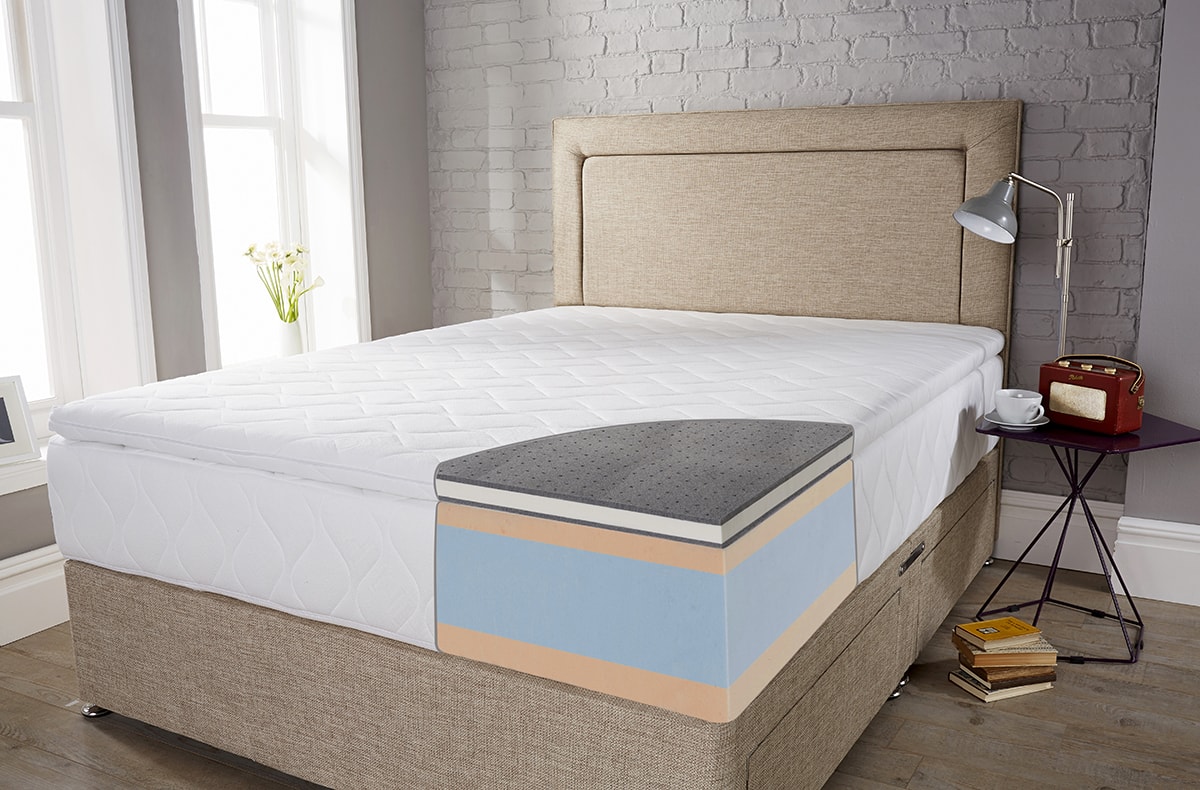
Ultra firm or ultra-soft mattresses
There are some people who really do prefer a rock hard mattress (ultra firm) or an all-engulfing ultra-soft mattress. If this is you, then let us know your preference, making it easier for me to select a product within your price range that will be suitable for you. Our resilience range is our firmest mattress we sell and is ideal for either people over 18 stone or lighter sleepers who want a super solid but two-sided mattress.
How to soften a firm mattress?
If your mattress is too firm and causing you sleepless nights the good news is you can soften a firm mattress relatively easily. The best way to soften a mattress is by using mattress toppers and protectors. These add extra deep comfort layers than can help add a softer feel the the mattress. This is a great way to prevent a firm mattress causing you nightmares or worse case having to replace your entire mattress.
The best toppers to soften a firm mattress are:
- Super soft polyester toppers
- Soft wool toppers
- Goose down toppers
- Duck down toppers
- Natural latex 5cm deep toppers
- Multiple white fibre (polyester) quilted toppers
Is there a limit to the number of mattress toppers you can add to a bed?
The quick answer is no! We’ve advised some customers with really firm beds, in particular on yachts or motorhomes, to use multiple toppers on custom made unusually sized firm mattresses. Especially if its costly to try and replace these custom beds.
The biggest drawback with adding two or even three toppers is keeping them in place on top of your mattress.
Check that your mattress toppers have corner straps making it easy to fit them to the mattress and stop them from moving around. Alternatively, you can buy clips with elastic straps that connect to each side of the topper, providing tension to keep them in place.
Summary
We repeat what we say in the article here on what-can-you-expect-for-your-money that initially you should be looking for the best combination of components you want that your money can buy. When establishing whether the bed is soft, medium or firm you need to look at the upholstery layers.
When choosing a mattress firmness you need to identify the spring tension based on your body weight and then focus on the mattress fillings to establish how firm the mattress will feel overall. Retailers want you to base this on spring tension because its quicker and easier them to sell you a mattress. However, doing it this way is completely wrong and the chances are you will end up with a really uncomfortable mattress.
Our expert team can assist you in calculating what spring tension you require for your body weight and how the upholstery layers will feel. So get in touch for tailored help on 0161 437 4419 or drop us a message below.

Dreaming of the perfect nights sleep?
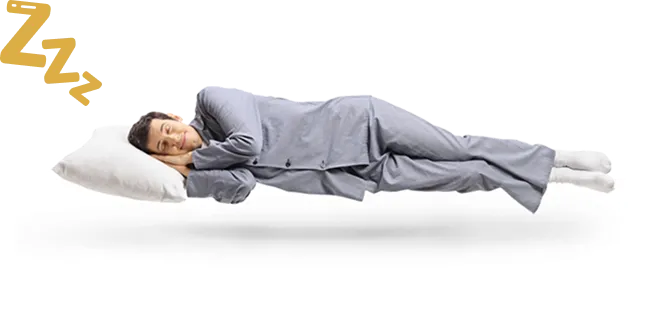
Ask us a question
There are over 6000 questions and answers submitted by you on all questions about mattresses and bed problems. Enter a keyword such as Vi Spring, John Lewis beds, bad back or Memory Foam and see if your question has already been answered.
If you can’t find an answer in knowledge hub, ask a new question. We aim to respond to all questions within one working day.
Newsletter
Enter your email to join our newsletter. We’ll send you occasional news and mattress expertise.
